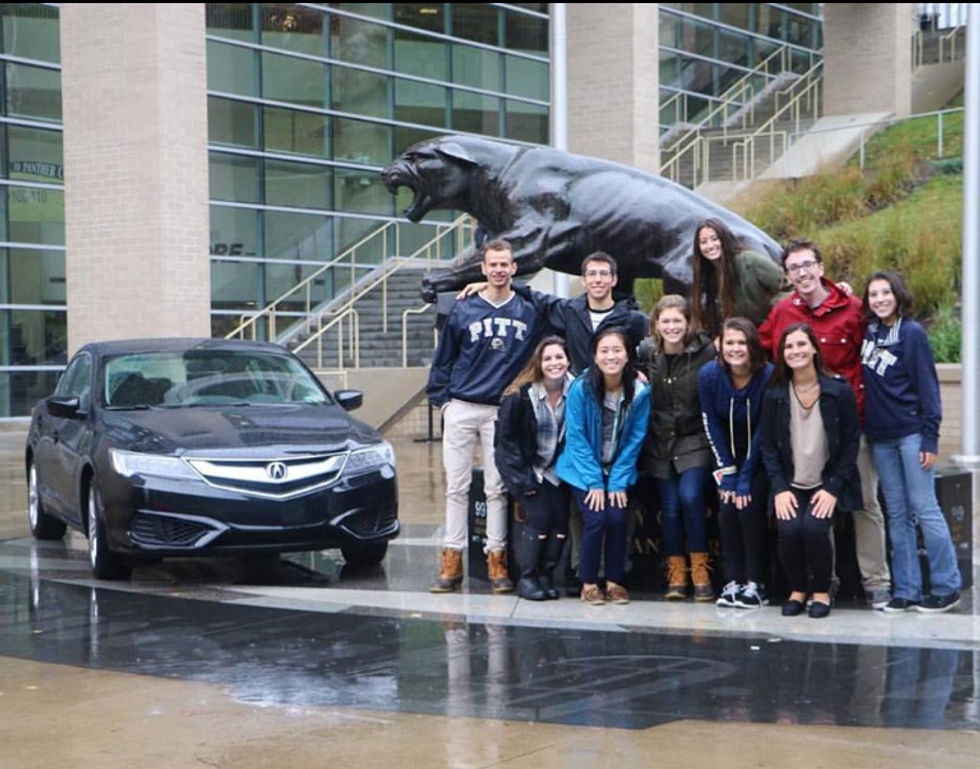Information technology has totally altered the idea of getting a license and buying a car in the modern age. 10 to 20 years ago, buying a car was considered a paramount moment in a person’s life, one that truly resembled the transition from young adulthood to adulthood. While purchasing a car is still considered a "big boy/girl purchase" it has become less and less of a defining, transitional moment. This is partly due to the face that millennials have access to a diverse array of alternative, automobile technologies that are delaying and even negating their purchase of a car. Uber is an excellent example of this; at the tap of a button, you can be transported literally anywhere, as Uber actually does not have a limit on how far they will take you. Simultaneously, the phenomenon of Uber’s driverless cars, especially here in Pittsburgh, is an idea that is catching on and widely supported. With so many convenient and cheaper alternatives to purchasing a car it’s no wonder millennials are taking alternative routes for their transportation. The problem presented to Car-makers is how to market to millennials who are disconnected from automobile culture and have been traditionally described as wary of marketing messages.
A group of University of Pittsburgh marketing students, Pros in Motion, set out to address this problem, conducting a study of 900 millennials. The results led to several interesting conclusions, mainly that Millennials are largely uninterested and unknowledgeable when it comes to automobiles. Three out of four millennials self-reported they would be in the market to purchase a new or used car within the next five years. The problem? This same sample of approximately 900 respondents also reported relatively low knowledge and interest in cars. On the flip side, cars, according to millennials, are a mark of success. They feel purchasing a car will give them feelings of security and accomplishment. While young adults categorize performance vehicles as sleek and fast, they also consider them to be targeted at wealthier adults with stable careers. So how does a car manufacturer teach these future car buyers about cars? More importantly, can any brand make them care and want to learn more?
The research is just one of many elements Pros in Motion has developed for the “Acura ILX Marketing Challenge 2016,” facilitated by EdVenture Partners. The group is working on a semester-long project to spark the millennials' interest in the Acura ILX model and overall brand awareness of Acura. To meet this challenge, Pros in Motion, Pitt’s student marketing agency, developed an innovative campaign theme with three goals: one: enforce the idea that buying a car is a mark of success, two: give the notion that Millennials can purchase performance vehicles early in their careers, and three: inform these future car buyers of important vehicle features, so they feel confident when they purchase their first car.
The campaign message is simple, to inspire our target audience to “Aim Higher.” The message shows millennials that they are high striving, ambitious, and always searching for the next big thing to create and to conquer. "Aiming Higher" is about dreaming bigger and getting better, setting goals and surpassing them, and never settling for less. The campaign will motivate millennials to move forward in their lives. “Aim Higher” will build our future car buyers’ perception of Acura as a performance brand that surpasses the expectations of their next vehicle purchase. In the next several weeks, the students will utilize marketing tactics including traditional ads, viral videos, guerrilla marketing tactics, a campaign website, and a campus event to get the Acura ILX into millennial’s purchase consideration. Upon completion of the campaign Pros In Motion will conduct post campaign research to evaluate its overall effectiveness. Can Pros in Motion successfully motivate millennials to ‘Aim Higher’? Stay tuned.





















